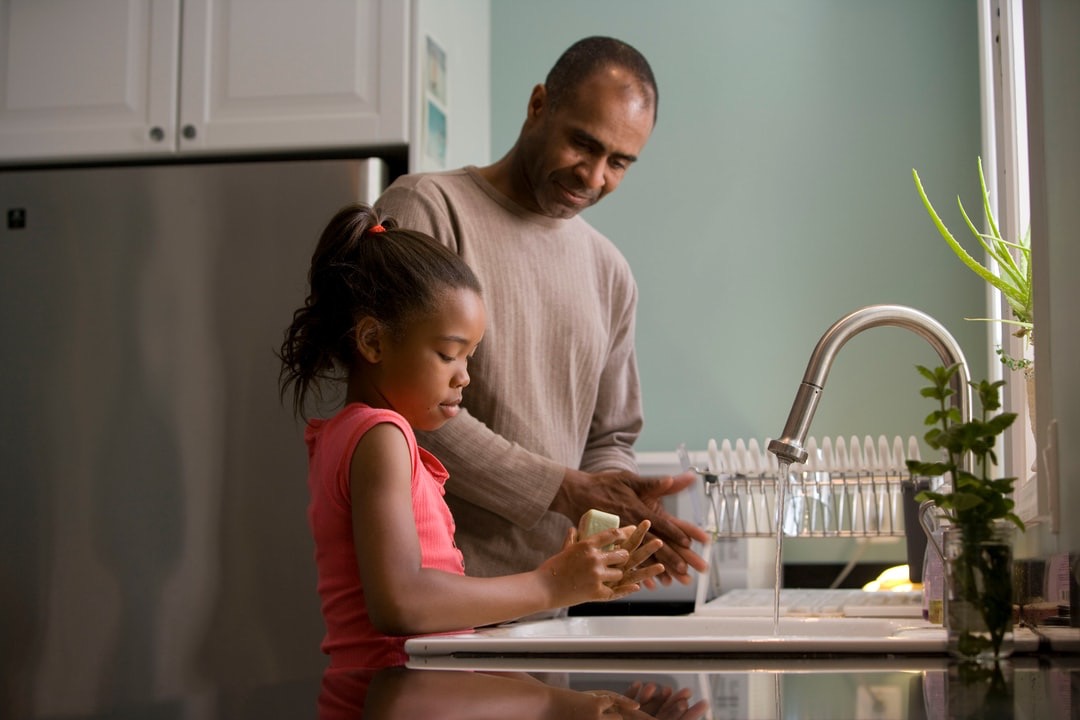
In 2017, SAMHSA published a report stating an annual average of 8.7 million children (age 17 or younger) in the United States live with at least one parent who has or has had substance use disorder (SUD). As genetics play a critical risk factor in the development of addiction, children exposed to a parent with SUD are more likely to develop a SUD at some point in their lives.
If you are a parent who struggles or has dealt with substance use in the past, you may feel overwhelmed at the thought of your child using substances or developing an addiction themselves. You may want to do everything you can to shield your child from the dangers and consequences of substance use. But can you actively prevent your child from experiencing addiction without surfacing the truth about your own substance use?
Parents and family members are often unsure how to discuss the topic of addiction during a conversation, so it is often left untouched. Leaving these complicated matters undiscussed often leads children to come to their own conclusions, which can cause them to act out as a result. It is essential to acknowledge the value of being open and honest with your children about substance use in an age-appropriate way. Then, when you believe they are mature enough, consider sharing your own experiences in an attempt to prevent them from experiencing the same consequences.
Talk with your child about alcohol and other drugs.
Many things may hold you back from discussing your past addiction with your child. You may still be struggling with the outcome of things or believe they are not old enough to understand. Regardless, it is still essential to have open and honest conversations about alcohol and other drugs, as this communication protects against substance use and addiction.
Consider age-appropriate conversations.
One of the reasons that many parents avoid talking about substance use with their children is because parents believe that their children are too young to understand. Luckily, there are many ways to introduce the bigger picture of addiction to your child in ways that they would understand.
A good example would explain the potential consequences that your child may experience if they overindulge in candy. You can even make little connections about how addiction develops from the brain, such as explaining that they may want more candy because the brain is motivating them to eat more and more sweets as a way of experiencing pleasure. Over time, you can revisit the candy scenario and update it to make the conversation age-appropriate.
SAMHSA’s 5 conversation goals:
When talking to kids about alcohol and other drugs, SAMHSA notes five conversation goals to keep in mind. These goals include:
- Show that you disapprove of underage drinking and other drug use.
- Show that you care about your child’s health, wellness and success.
- Show that you are a good source of information about alcohol and other drugs.
- Show that you are paying attention to your child and discourage risky behaviors when they arise.
- Build your child’s skills and strategies for avoiding drinking and drug use.
It is also imperative to bring awareness to resources and treatment options available for your child as they age, both for substance use and mental health.
Be selective with what you tell your children regarding your past substance use.
When you have open and honest conversations about alcohol and other drugs with your children, it is only a matter of time before they ask you about your substance use. As children age, they may experience clashing norms and expectations regarding substance use. It is important to understand that there is value in discussing your experiences, although it may help to be selective in what you tell your children.
One of the most notable protective factors against addiction is a positive and nourishing parent-child bond. Whether your child probes you or you feel ready to share your own experiences, remember to keep the conversation light and empathetic. Instead of surfacing all of your past substance use details, you can frame the conversation to prioritize communication and problem-solving.
It does not necessarily matter how much you tell your children or what you say to your children. What matters is the relationship you have built with your child that allows them to feel comfortable asking you difficult questions, especially related to substance use.
Consider the impact of the question they are asking. For example, if a child is curious about why people become addicted to alcohol and other drugs, it may help to shed light on a personal narrative. If a child is curious about the effects of a drug, it may help to bring the conversation back to how drug use impairs brain functioning.
You know what is best for your child.
A parent always knows what is best for their child. For more advice, you can consider reaching out to a relative or professional that can help you better understand the things to avoid telling your child vs. the things you should bring awareness to.
Associated Behavioral Health Care is a mental health and substance use treatment facility. We understand that adolescent substance use is on the rise, which is why we offer youth services. We have several other treatment programs available for anyone struggling with mental health or substance use, including online telehealth and TMS therapy. To learn more about our treatment center or parenting in recovery, please give us a call today at (844) 335-7384.
